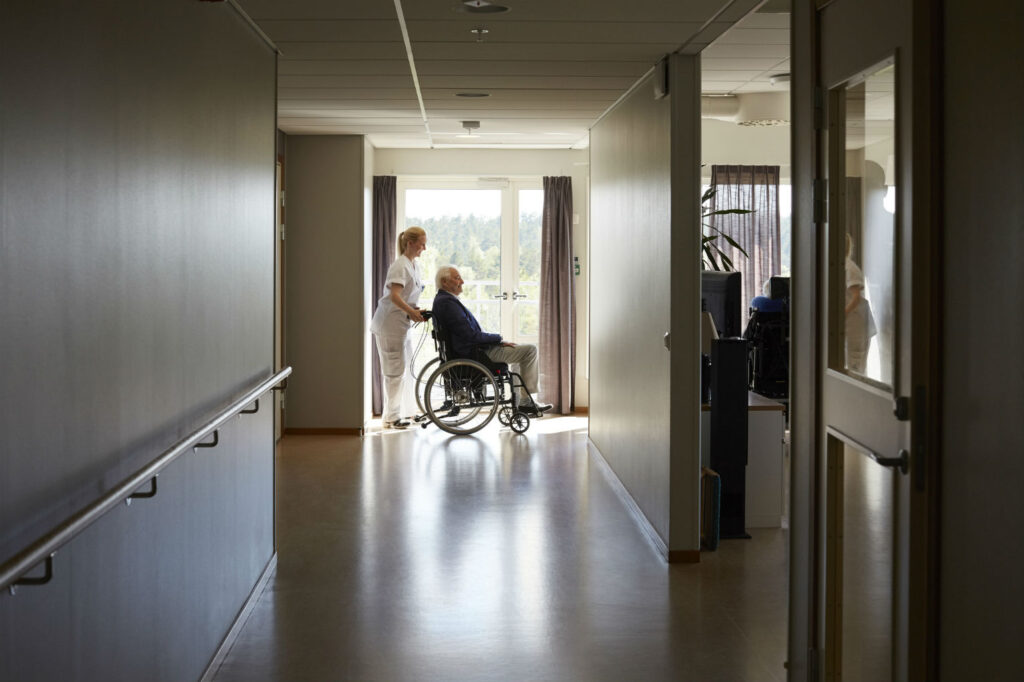CHICAGO, IL – Nursing home abuse is a grave concern that can have devastating consequences for elderly residents. In Illinois, if you suspect that a loved one has suffered abuse or neglect in a nursing home, it’s crucial to understand the legal avenues available to seek justice. Filing a nursing home abuse lawsuit involves several key steps, and navigating this process can be complex. Here’s a comprehensive guide to help you understand the process for filing a nursing home abuse lawsuit in Illinois.
- Identify and Document the Abuse: Before filing a lawsuit, you need to have a clear understanding of the abuse or neglect that has occurred. Nursing home abuse can take many forms, including physical abuse, emotional abuse, sexual abuse, neglect, and financial exploitation. Documentation is essential, including medical records, photographs, witness statements and reports. You will need this documentation to prove injury or neglect and unsafe living conditions.
- Consult with an Attorney: Once you have gathered sufficient evidence, the next step is to consult with a lawyer who specializes in nursing home abuse cases. An experienced attorney will evaluate your case, help you understand your legal rights and determine the best course of action. During the consultation, you’ll discuss the evidence, your legal options and obtain a case evaluation to assess the strength of your case and be advised on the potential outcomes.
- File a Complain: If you decide to proceed with a lawsuit, your attorney will draft a formal complaint outlining the allegations against the nursing home. The complaint will include the parties involved, allegations and damages. The complaint is then filed with the appropriate Illinois court. In Illinois, nursing home abuse lawsuits are typically filed in the Circuit Court of the county where the abuse occurred.
- Serve the Defendants: After filing the complaint, the next step is to serve the defendants with a copy of the complaint and a summons. This legal document notifies the nursing home and other defendants of the lawsuit and their obligation to respond.
- Discovery Process: Once the defendants respond to the complaint, the discovery phase begins. This phase involves both parties exchanging information and evidence relevant to the case. Discovery methods include interrogatories, depositions and requests for documentation. Discovery is crucial for building a strong case, as it helps uncover additional evidence and clarify the facts surrounding the abuse.
- Pre-Trial Motions and Settlement Negotiations: Before the trial, there may be pre-trial motions where either party requests the court to make certain rulings or dismiss parts of the case. Additionally, many nursing home abuse cases are settled out of court. Settlements made be made through mediation or a settlement offer. Mediation is when a neutral third party helps facilitate negotiations between the plaintiff and the defendants whereas a settlement offer is when the defendant(s) offer a financial settlement to resolve the case without going to trial. If a settlement is reached, it must be approved by the court, and the case will be resolved without a trial. If not, the case proceeds to trial.
- Trial: If the case goes to trial, both parties present their evidence and arguments before a judge or jury. The trial process involves opening statements, presentation of evidence, closing arguments and the verdict.
- Post-Trial: If you win the case, the court will award damages based on the harm suffered. If you lose, you may have the option to appeal the decision. If you believe there was a legal error in the trial, you can appeal to a higher court for a review.
Contacting a Nursing Home Abuse Lawyer in Illinois
Filing a nursing home abuse lawsuit in Illinois is a multi-step process that requires careful documentation, legal expertise and persistence. The Dinizulu Law Group is here to help you significantly improve your chances of achieving a favorable outcome and ensuring that the abusive practices are addressed. If you suspect abuse or neglect in a nursing home, take prompt action and contact us immediately to seek justice for your loved one. Call us at (312) 834-1920 to receive a free consultation today!



